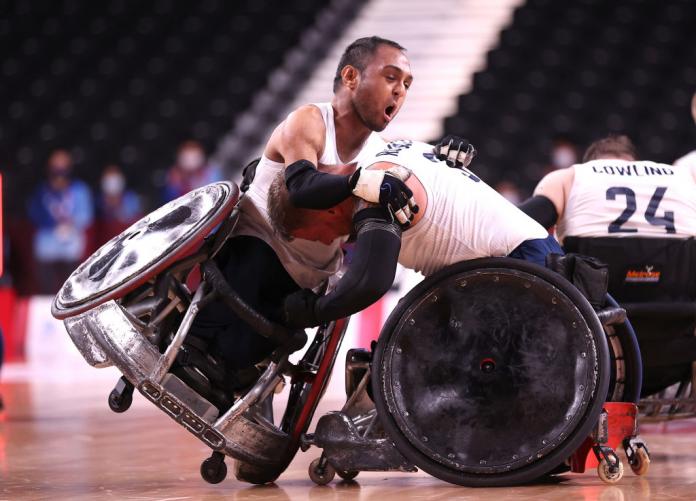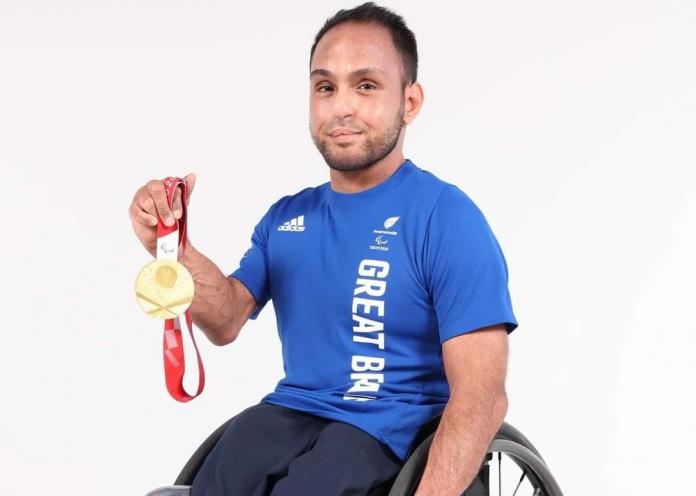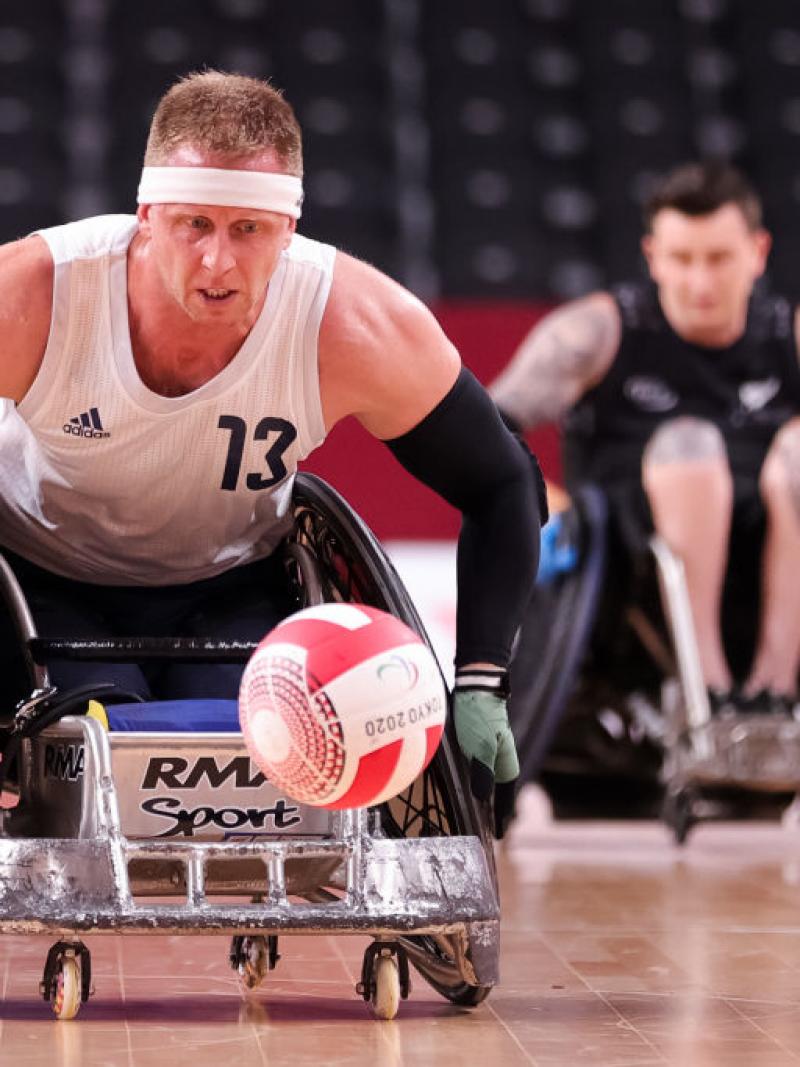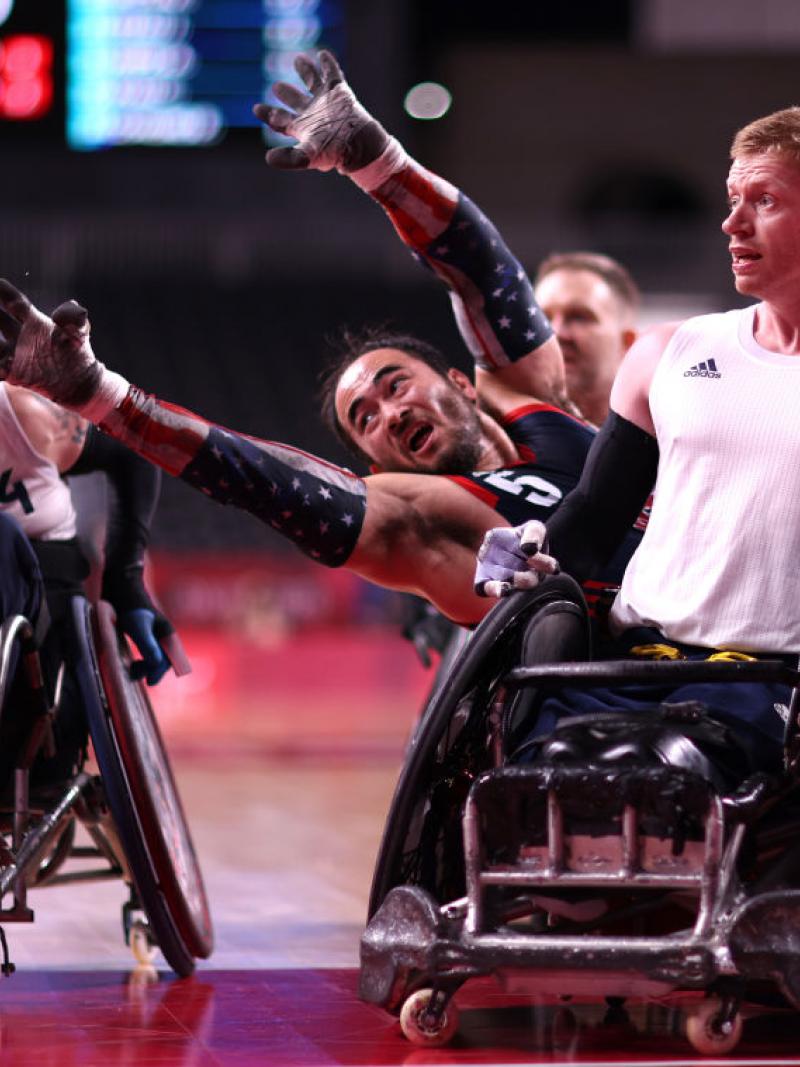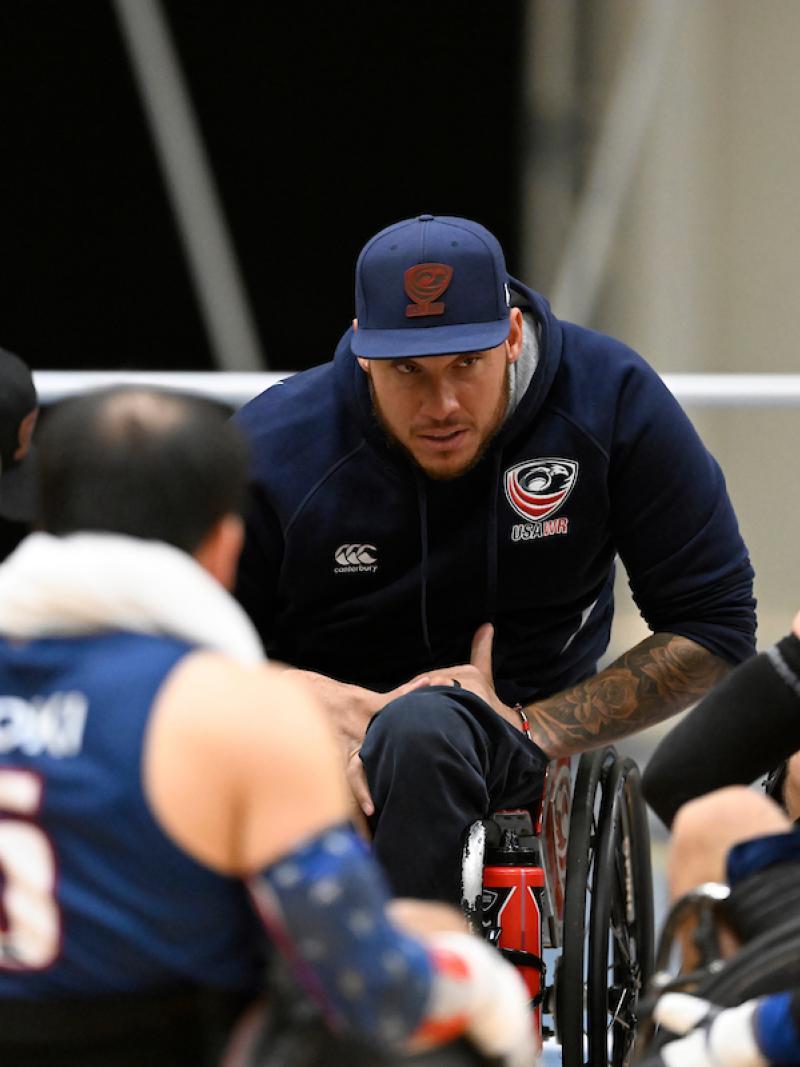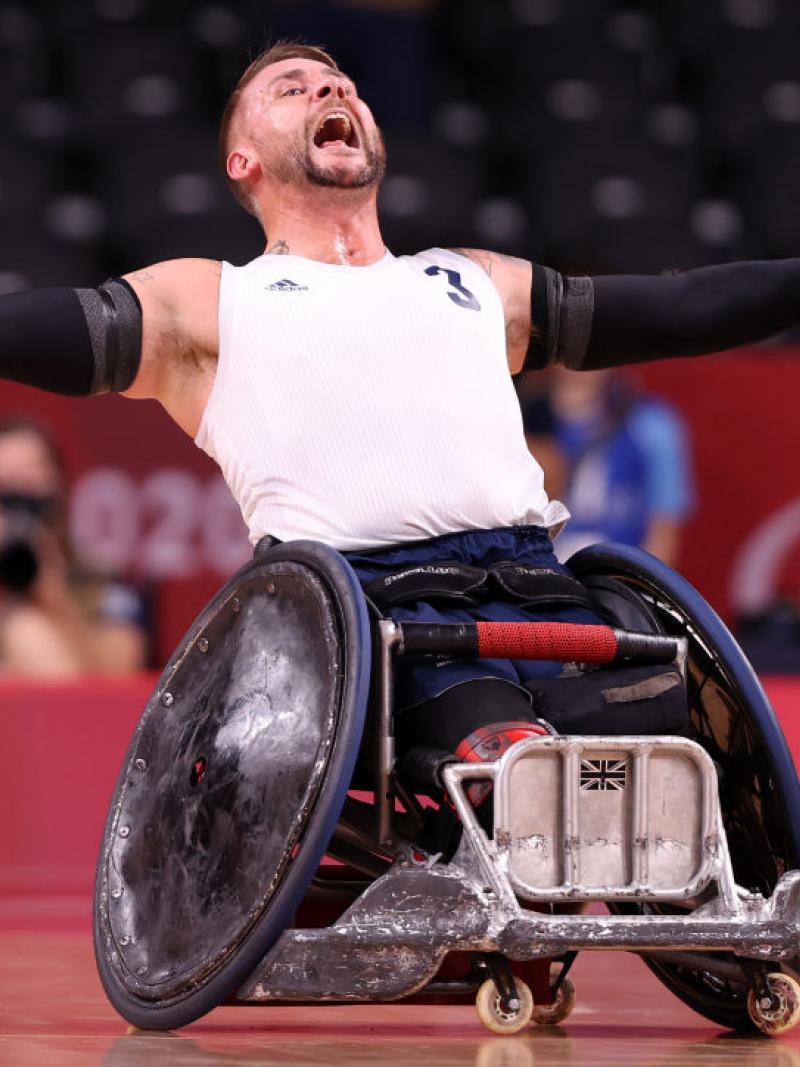Bhuta eager to inspire next generation after retiring from wheelchair rugby
Great Britain’s Ayaz Bhuta was told he may be too small to compete in wheelchair rugby at an international level, but he went on to become a Paralympic champion. And he still has big goals after retiring in December 2022 28 Feb 2023
When Ayaz Bhuta was presented with the gold medal in wheelchair rugby at the Tokyo 2020 Paralympic Games, in his mind the British athlete was recalling his long journey in sports, including all the setbacks he faced.
In the early months of his wheelchair rugby career, Bhuta was told that his stature may be too small for him to succeed at an international level. In his Paralympic debut at Rio 2016, Great Britain failed to advance to the knockout stage.
But reaching the highest step on the podium in the Japanese capital, Bhuta knew that all the sacrifices had paid off.
“Because I had never touched the Paralympic medal of any colour, when we were presented with the medal, I was shocked at how heavy it was and how special it was,” the 33-year-old said.
“I think I was crying when I was receiving the medal because it reminded me of my journey of disappointment,” he added. “That moment just made it worth it after all those years.”
After drawing the curtain on his 12-year career in December 2022, Bhuta is no longer thinking about his “journey of disappointment”. Instead, his focus is on how to help young wheelchair rugby athletes succeed and how to break down barriers within his own community.
How it started
Bhuta, who was born with a rare genetic condition called Roberts syndrome, recalls struggling with his lack of confidence during college years. He started wheelchair basketball to overcome this, and become healthy both physically and mentally.
“I come from a community, a South Asian community, where disability isn’t treated as well as it is or there’s a lot of prejudice and misconceptions. So every time I went out, I’d get stared at,” Bhuta said. “I put on a lot of weight and one way I got out of it was to find an activity and I found wheelchair basketball.
“I absolutely loved it. It was something I looked forward to and (to lose) the weight. I lost a lot of weight.”
Playing for a local club team, Bhuta travelled across Great Britain and the team sport became a way to boost his confidence.
He switched to wheelchair rugby later on because he enjoyed the physical side of the sport, especially how athletes were allowed to crash into each other’s wheelchairs – something he was often penalised for doing when competing in wheelchair basketball.
Just months after taking up wheelchair rugby, Bhuta was called up to represent Great Britain in a tournament in Australia in 2010. He competed in the event, but he still recalls the discouraging words one of his coaches told him after.
“I was told that I’m too late, I’m too small after the tournament. I was still welcome to play at club level, but GB level was a bit more tricky,” he said.
“But I’ve had it all the way throughout my life, like ‘You can’t do this, you can’t play sports, you can’t drive, you can’t do anything’. But you manage to prove those people wrong. And this was just another example. The best lesson is that I enjoyed it, I found something that I enjoyed.”
Making history
Bhuta made his way up into the Great Britain development squad in 2012. Four years later, he competed at the Rio 2016 Paralympic Games, where his team placed fifth after finishing the group stage with one win and two losses.
After Rio, the British squad made an effort to rebuild their team culture and worked as a team even when training individually during the COVID-19 pandemic. They were focused on winning Britain’s first-ever wheelchair rugby medal at the Tokyo 2020 Paralympic Games, held between 24 August and 5 September 2021.
In Tokyo, Great Britain defeated home favourites Japan 55-49 in the semifinals to secure a spot on the podium, before beating the United States in the gold medal match.
“The best moment was, we celebrated that semifinal win like it was a gold medal because we made history,” Bhuta said. “I was one of the first couple of athletes in the changing room (after the match) and then everybody came through one by one. We were just cheering.
“But then we stopped celebrating and said to ourselves, ‘We’ve got a gold medal to win tomorrow’.”
In the final against the USA, Bhuta remembers telling himself to stay calm and not get too excited in the fourth quarter. Britain won the match 54-49.
What's next?
Fifteen months after the Tokyo Games, Bhuta decided it was “the right time” to retire and make way for a younger generation of players.
Now the Paralympic champion hopes to raise up-and-coming talent, similarly to how his coaches helped him in the early days of his career. He is coaching his club team, West Coast Crash, while also supporting the GB Talent team, a group of next generation players.
Bhuta is active outside the sports sphere as well. After retiring, he plans to travel around Great Britain to give public speeches to change perceptions around people with disability, especially in his own community.
“(In my community) the education of disability, it’s not great,” Bhuta said. “I want to keep educating people from my community about disability and that anything is possible.
“It’s just breaking down that barrier."

 Facebook
Facebook
 Instagram
Instagram
 Twitter
Twitter
 Youtube
Youtube
 TikTok
TikTok
 Newsletter Subscribe
Newsletter Subscribe

